Generations of alumni celebrate the works, instructors, and experiences of the 100-year-old Core Curriculum.
Columbia College | Columbia University in the City of New York
Generations of alumni celebrate the works, instructors, and experiences of the 100-year-old Core Curriculum.

The measure of the Core Curriculum resides not only in the number of years it has existed, but also in the generations of students it has influenced. And as the Core sails into its 101st year, that influence shows no signs of abating — it remains one of the defining experiences of a Columbia College education and unites the entire College community. For that reason, we knew that every alum would have a Core story to tell. Over the past year, as part of the College’s Core Centennial celebration, we’ve asked about your favorite works, thinkers, artists and writers; which professors had an impact; what you learned; and which part of the Core experience you enjoyed most. Here’s a sampling of your responses; share your story at core100.columbia.edu/community.
—The Editors
Learning is a painful experience sometimes. Unhinging your interior and allowing in new ideas and new thoughts, and new perspectives from other students, is not an easy or comfortable experience. The single institution to which I’m most indebted is Columbia College. I’ve drawn from what I learned there my entire life.
I remember the first thing Elliot Gilbert, our Lit Hum instructor, said at the beginning of the course: “Only a very thin piece of asphalt or cement separates us from the jungle.” I’ve kept it in mind through everything and have, I hope, managed to increase its thickness.

Often my wife will ask me a question when doing a crossword puzzle, reading
a book or needing some fact. Often the answer comes to me out of the Core. She says, “HOW DID YOU KNOW THAT?” I smile.
So much of one’s experience is based on the ability of the professor to communicate, and to facilitate and elevate discussions, creating magic in the classroom and bringing home the Core. I enjoyed so many teachers — adjunct, graduate, full professors — who were able to do this consistently.
Genesis: Analyzing what is perhaps the most influential text in the Western canon for its literary value was fascinating to me.
Great and constructive ideas can come from anybody at any time.
I was presented with two options among the Ivy League schools to which I was admitted. One was to effectively choose my own curriculum and, other than satisfying major requirements, I could choose any class I liked. The other, at the College, was to have the first two years of my education chosen for me.
I wisely decided that a 200-year-old college telling me what a good college education was would be a better choice than an 18-year-old kid (moi) guessing what a good college education might be. I have never regretted it.

Lit Hum is the great unifier for College alumni not only because of the conclusions that we arrived at through the texts, but also by the act of searching for answers in the words.
One Lit Hum exchange with Professor Larry Lapidus stands emblematic: I raised my hand to respond to a classmate’s comments and prefaced my remarks by saying “I was thinking ... ” when he interjected, “Good, Mr. Halpern, good.”
Crime and Punishment. It was a life-changing book that made me reflect on the ideas of religion, guilt, human existence and our inner condition.
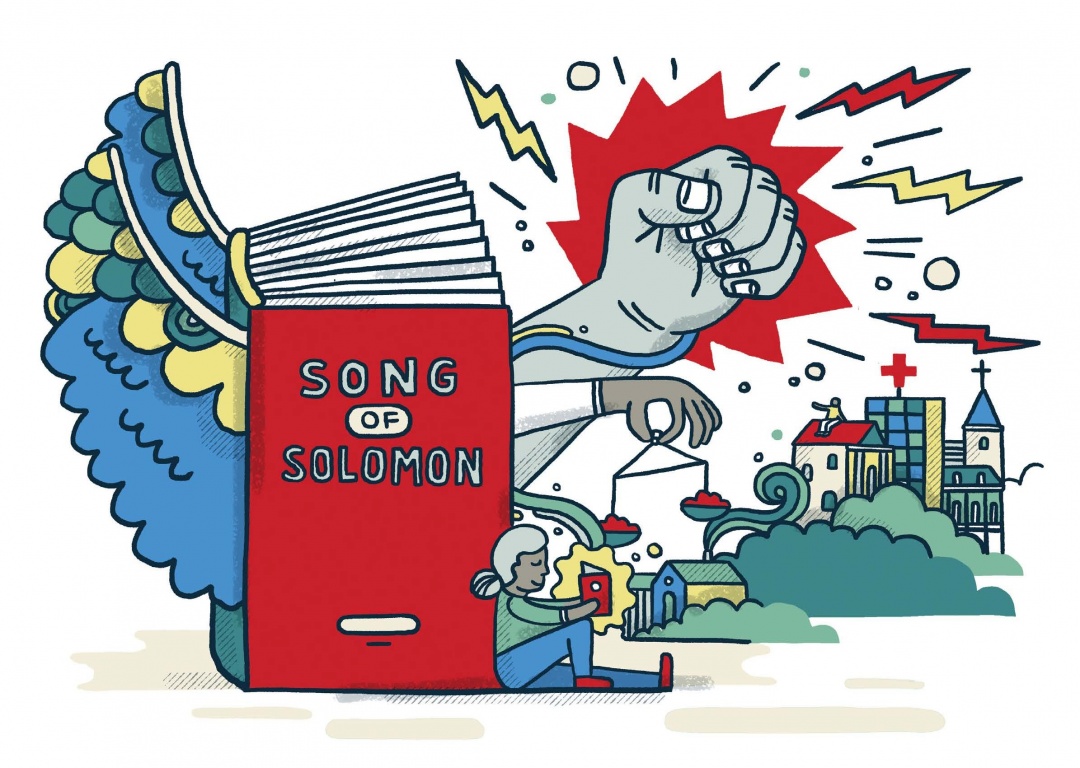
There are many fine colleges where students read Aristotle, Shakespeare, Dante and Morrison. What distinguishes the Core is the academic “hothouse” that comes from contemporaneous academic study of these fundamental works with one’s peers.
Herodotus, for his great storytelling abilities and sage observations of human nature. I remember the “Wheel of Life”: Sometimes you are on the rise, or at the top; sometimes at the bottom. But the wheel keeps turning.
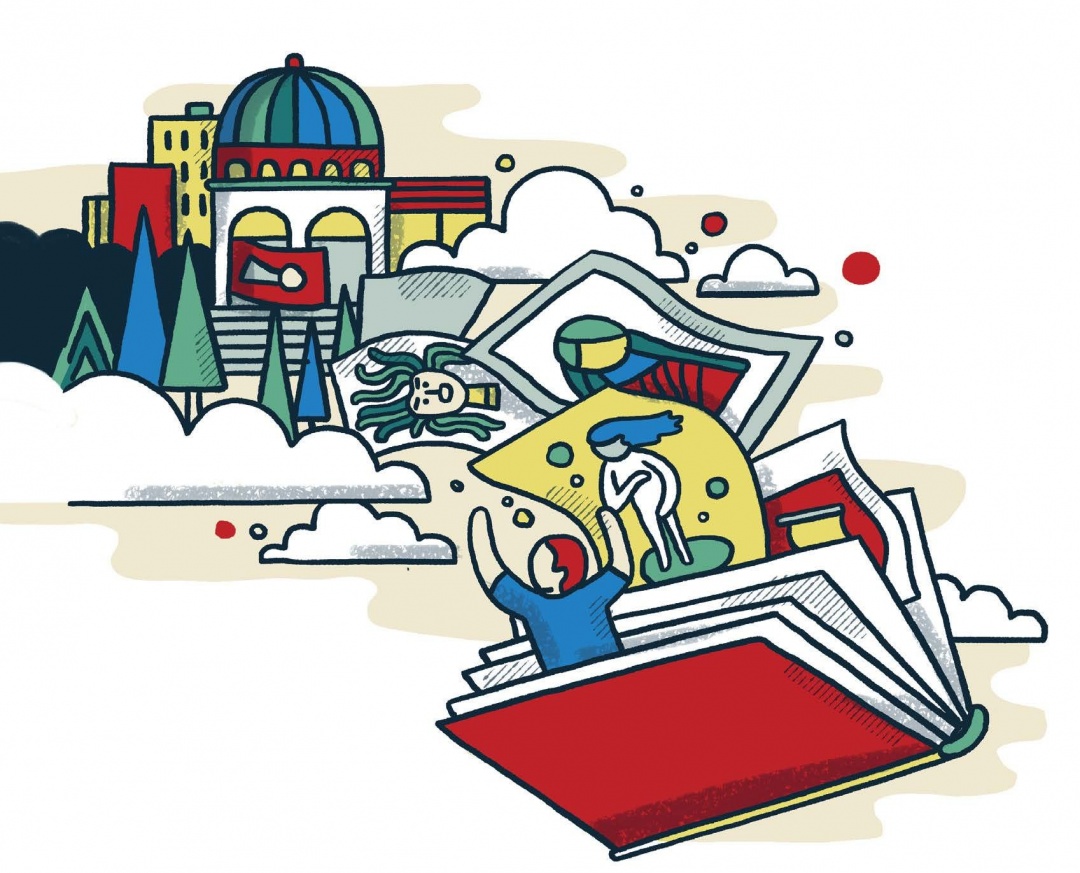
Before Columbia I did not have much appreciation of art and certainly not of art history. However, after taking the Core class as a freshman, my interest grew; I ended up majoring in biology and became a physician, but I also ended up with a minor in art history. Throughout the years I had visited a few art museums here and there, and three years ago my wife and I finally visited Italy. Among our stops were the Vatican collection in Rome and the Uffizi Gallery in Florence. It all came flooding back to me as I could see in real life what I had only seen in books and prints all those years ago. It was awe-inspiring, to say the least, and I am forever grateful for the foundation I received from the Core.
The Oresteia: The compelling drama and conflict between the characters felt so modern — thrilling as a new Columbia student.
The Core exposed me to a lifetime’s worth of enjoyment of the classics, philosophy and art. It provided a nibble of what has turned out to be a veritable banquet.
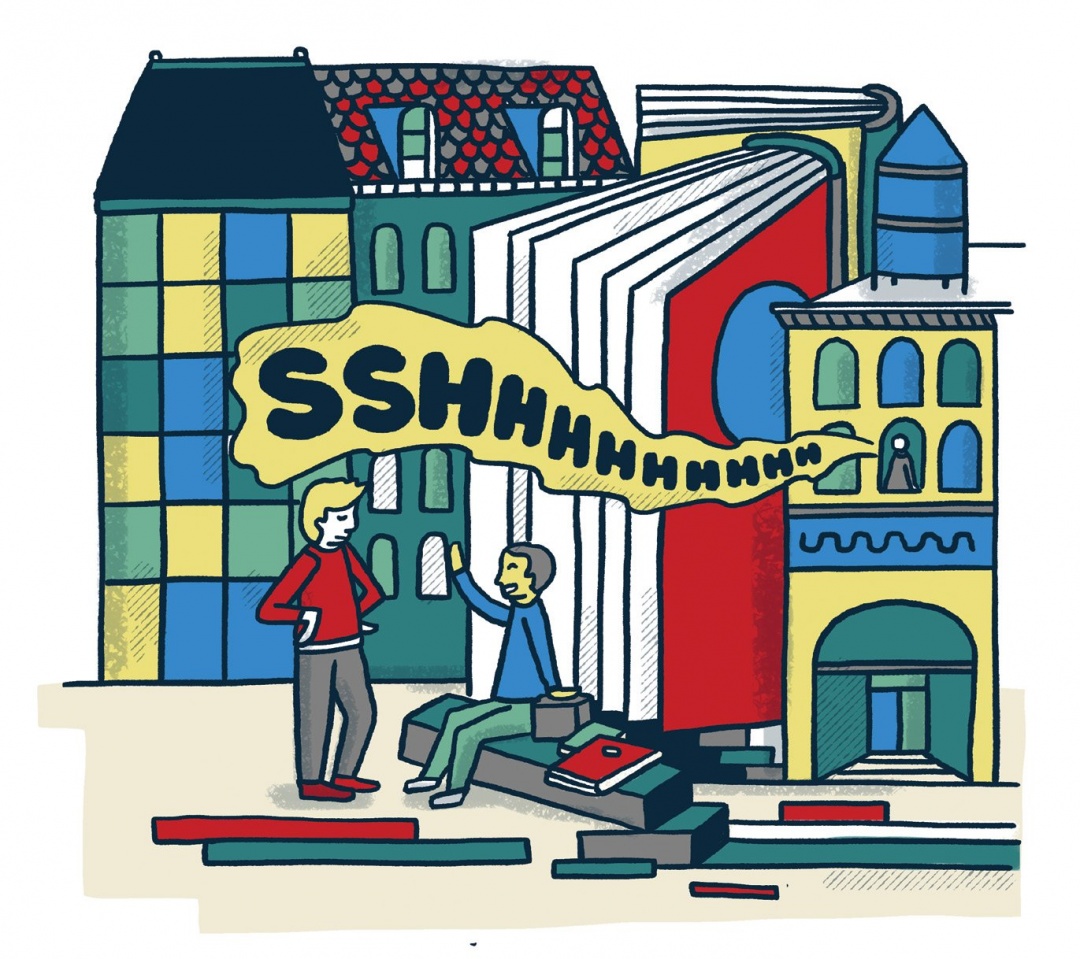
Thucydides, because among other things, he illustrated how fragile democracies are — how the fortunes of a society are shaped by good and bad leaders, and how important it is for citizens to be on guard against demagogues and thus work to become acquainted with the prevailing economic and social issues of the day, to vote intelligently. I believe History of the Peloponnesian War is the most relevant and engaging of all the books we studied in Lit Hum and should always remain on the syllabus. I have read it five times since graduation, once (partially) in Greek. It is truly a kteima eis aei, a possession for ever.
Plato’s The Republic was the first book I read at Columbia College in 1975; I realize how relevant it still is today. I recently checked out the insights of this philosopher, who was born in 427 B.C. Plato was disillusioned with his democratic government and wrote about behaviors ideal for people “to whom you would entrust your state.” From the yellowed page 280 of my 1974 Penguin Books edition, Plato wrote: “Good memory, readiness to learn, breadth of vision and grace, and be a friend of truth, justice, courage and self-control.”
Contemporary Civilization: I loved reading the Bible as a piece of literature rather than as a piece of religion.
The Odyssey: Despite the fact that it was “written” more than 2,000 years ago, human nature remains the same — we are brave but also cowardly, adventurous but also homebodies, and above all else, we value the bonds with family and friends closest to us.
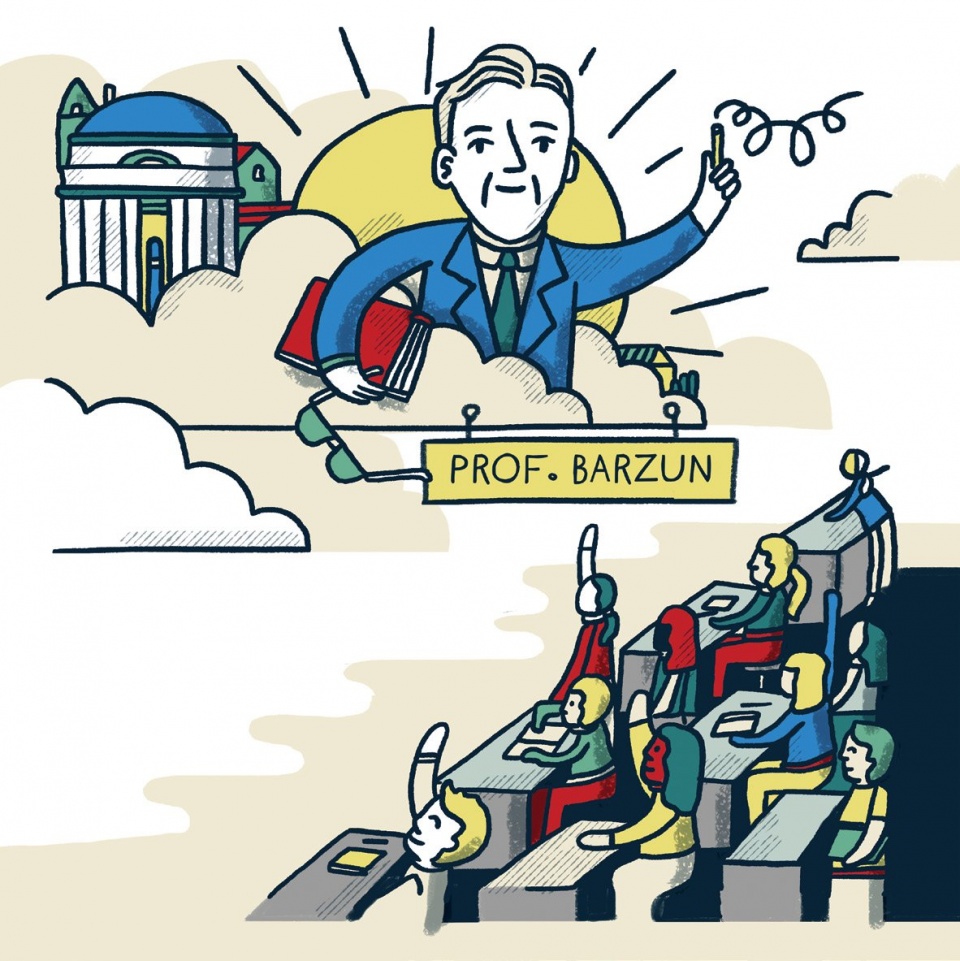
I was lucky enough to be assigned to Professor Jacques Barzun CC 1927, GSAS 1932’s section for CC. His erudition and courtesy to his students so impressed the class that several of us referred to him as “The Prophet.” After a few weeks we decided that this did not do him justice. The more suitable name would be “God.”
Even though I excelled at writing in high school, I could not master “Logic & Rhetoric.”
Hannah Arendt: Her thought gave me a framework to make meaning, and set upon a course of purpose, in my life.
I was brought up in a fairly strict Christian church. The Core taught me that there are philosophical ideas and principles that you can learn to live a good life by, with plenty of room for questioning and understanding.
The Federalist Papers: The tension between the greater good and individual rights continues today.

The Iliad: There was so much intricate and unique language that it was easy to just get lost in the wording.
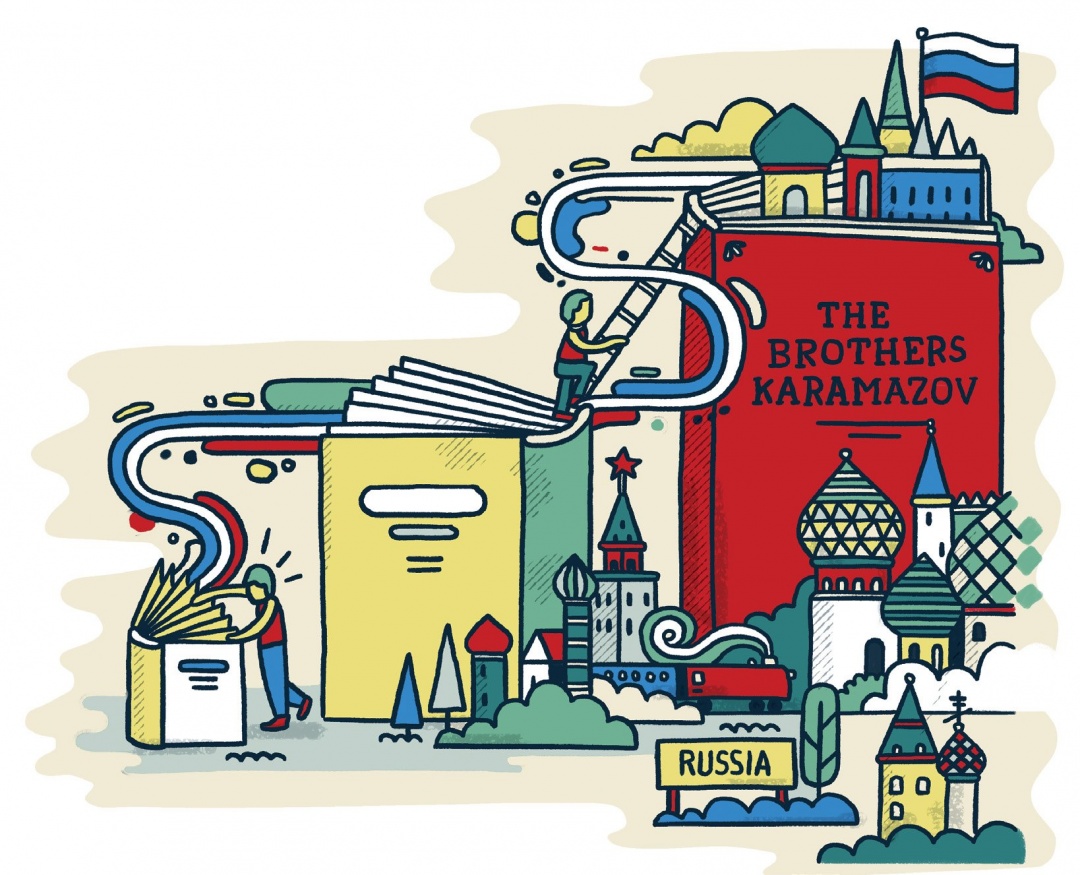
I could write a book about the Core and someday just might. Wallace Gray assigned The Brothers Karamazov to be read before Spring Break; I was so frustrated at its length that I decided to do no other work until I finished it. I spent two weeks doing nothing but, and it shook me up so much that I wound up learning Russian, spending time in Russia and returning to Columbia for grad school in Russia stuff. I’ll read it again in 20 years and update this post. Books live and grow along with us.
Acknowledging the other side to an argument and active listening is crucial to understanding. But recognize it’s OK to disagree.
The Core Curriculum is the soul of the University. It is the place where we concern ourselves not with what we know, but with who we are. It’s an invitation to look inward; the “deliverable” in the Core is a clearer vision of yourself.

The same things that affect me have affected scholars, heroes, dreamers and people of the world for millennia.
Ready to share your Core Story?
Write to us at core100@columbia.edu or share online.

Published three times a year by Columbia College for alumni, students, faculty, parents and friends.
Columbia Alumni Center
622 W. 113th St., MC 4530, 6th Fl.
New York, NY 10025
212-851-7852
cct@columbia.edu

Columbia Alumni Center
622 W. 113th St., MC 4530, 4th Fl.
New York, NY 10025
212-851-7488
ccalumni@columbia.edu